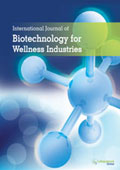|
|
Abstract: Globally, breast cancer incidence increases at 1% to 2% annually. It is the number one cause of cancer death in women. Current literature implies that soy food intake is linked to decreased risk of breast cancer due to its rich isoflavones. On the other hand, intake of animal fat, red meat, organ meat and high-fat dairy products during premenopausal years may increase risk for this cancer, but no apparent risk has been established for fish or poultry intake. Monounsaturated fat and the improved ratio of omega-3 to omega-6 fatty acids have showed potential to reduce risk. On the other hand, high glycemic index diet but not glycemic load is associated with a significantly increased risk. Central rather than general obesity carries similar risk. Furthermore, lifestyle rather than genetic differences are widely implicated in breast cancer. A comprehensive phyto-nutritional therapy was adopted for treating a case involving stage IV breast cancer in a premenopausal woman, who was turned away by a hospital offering conventional treatment. The therapy involved designing and monitoring the implementation of dietary plans to achieve optimum health outcomes for the major abnormal metabolic blood/urine markers identified for this particular patient. Nutrient-dense food items with generous servings of a variety of spices and herbs, supplemented by vitamins, minerals and phyto-extracts was prescribed as part of the therapy. Many non-toxic dietary nutrients and phytonutrients are known cytotoxic agents promoting cancer regression via apoptosis pathways, which have yet to be fully understood. Conclusion: The complete remission of the malignancy initiated by this natural therapy would suggest that an advanced stage breast cancer is a metabolic disorder reversible by an evidence-based phyto-nutritional therapy. While not all cases of malignancy can possibly be completely reversed, the positive outcome achieved in partnership with the patient warrants further study involving larger number of women with similar level of malignancy. Keywords: Breast cancer, nutritional therapy, dietary modification, nutraceuticals, apoptosis.Download Full Article |






